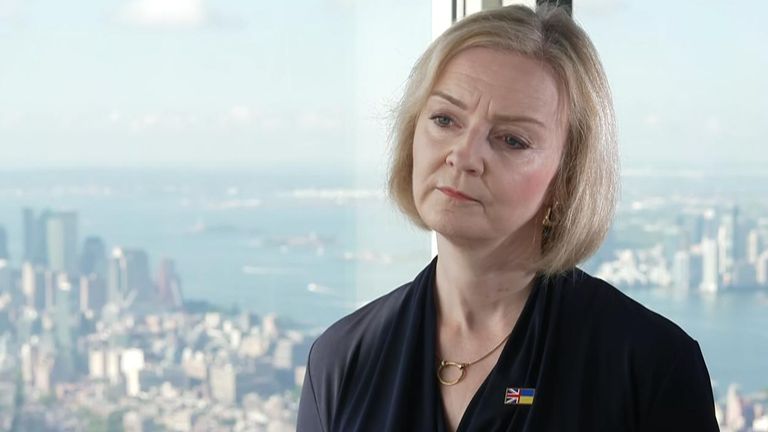Chancellor Kwasi Kwarteng has announced that April’s National Insurance hike is to be reversed from 6 November.
The 1.25 percentage point increase was introduced under former chancellor Rishi Sunak, but during the Tory leadership race Liz Truss pledged to change it.
Mr Kwarteng made the announcement ahead of a “mini-budget” on Friday.
Politics hub: Health secretary urges ‘national endeavour’ as NHS plan unveiled
He said: “Taxing our way to prosperity has never worked.
“To raise living standards for all, we need to be unapologetic about growing our economy. Cutting tax is crucial to this.”
The Treasury said most employees will receive a cut to their National Insurance contribution directly via their employer’s payroll in their November pay, although some may be delayed to December or January.
It calculated that almost 28 million people will keep an extra £330 of their money on average next year, whilst 920,000 businesses are set to save almost £10,000 on average next year thanks to the change
In a tweet, Mr Kwarteng called it a “tax cut for workers”.
The levy was expected to raise around £13bn a year to fund social care and deal with the NHS backlog which has built up due to the COVID pandemic.
However, Ms Truss argued it was wrong of her party to break its 2019 manifesto commitment not to raise taxes, and said the extra funds can be raised through general taxation.
The chancellor confirmed today that the funding for health and social care services will be maintained at the same level as if the tax was in place.
MPs are expected to vote on repealing the health and social care levy once they return from party conferences in October.
Read More:
Part-time workers to face benefit cuts if they don’t look for more work
Liz Truss’s plan for tax cuts to boost economy ‘a gamble at best’
Truss prepared to be unpopular – and that just might be the case
Downing Street said the repeal bill was part of the government’s commitment to “a low-tax, high-growth” economy.
“This is delivering on a commitment the PM made on the (Tory leadership) campaign trail,” a Number 10 spokeswoman said.
The move comes ahead of Mr Kwarteng’s “fiscal event” on Friday when he will set out more details of the government’s plans to cut taxes, including scrapping a planned rise in corporation tax.
Ms Truss has admitted the cuts will disproportionately benefit the rich, but says she is willing to make “unpopular” choices to get the economy going again.
However, The Institute for Fiscal Studies said the plan to drive growth was “a gamble at best” and that ministers risked putting the public finances on an “unsustainable path” by slashing taxes while raising government borrowing.


